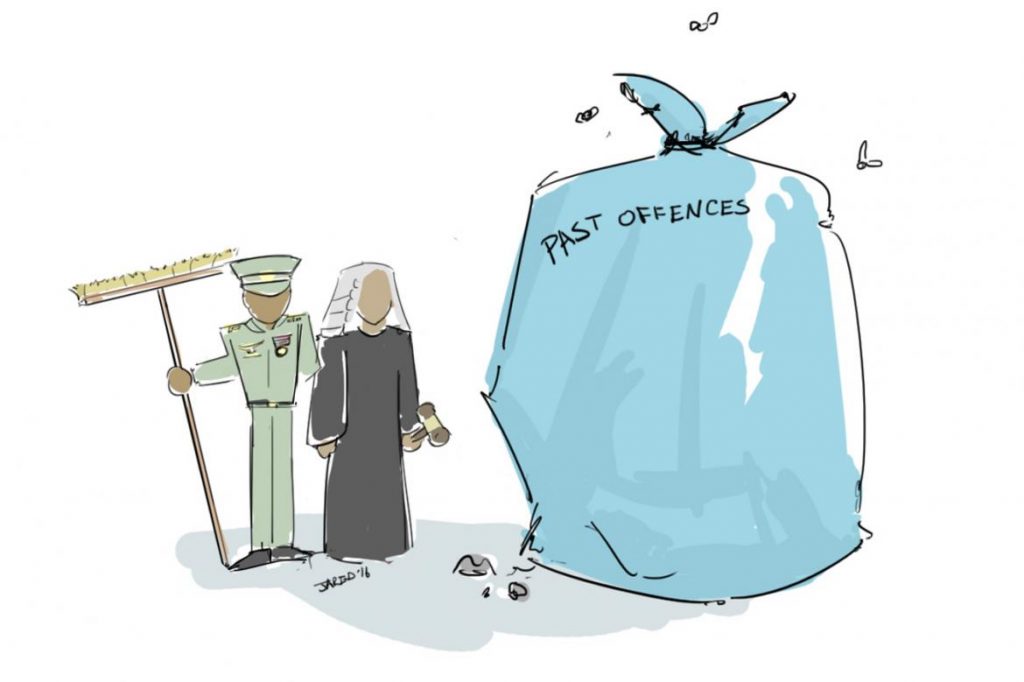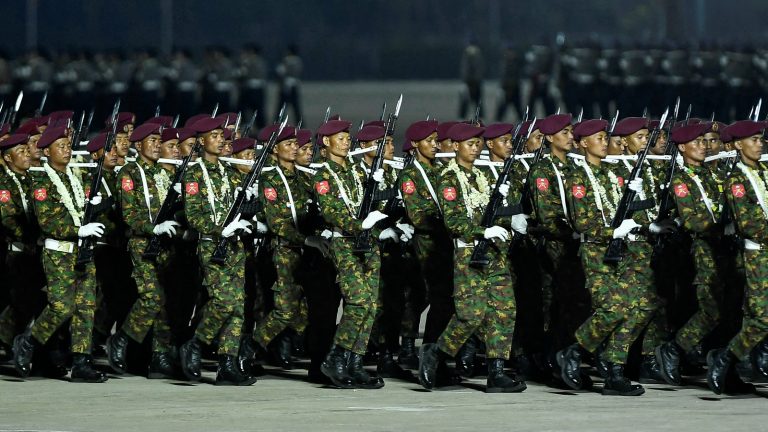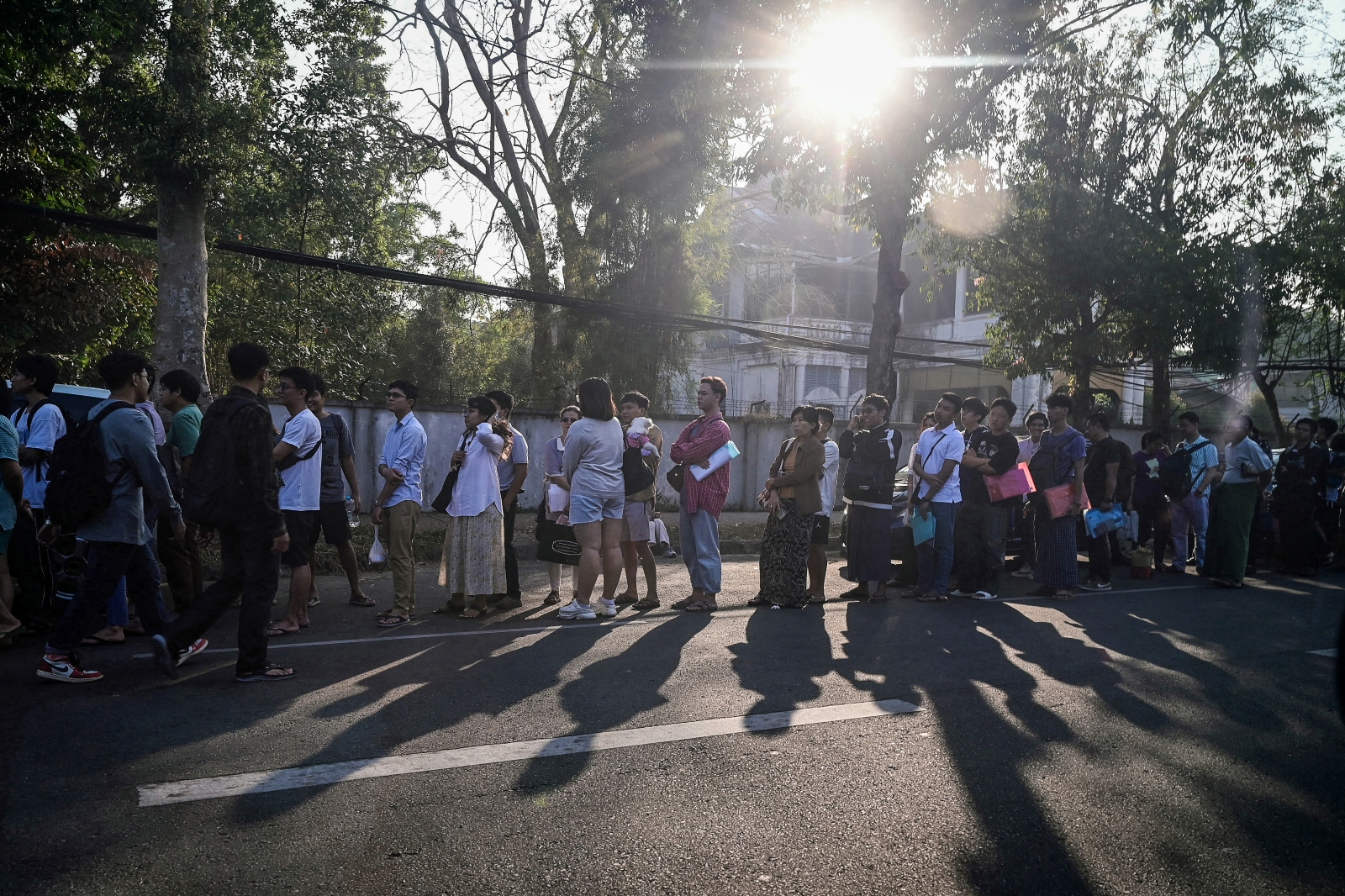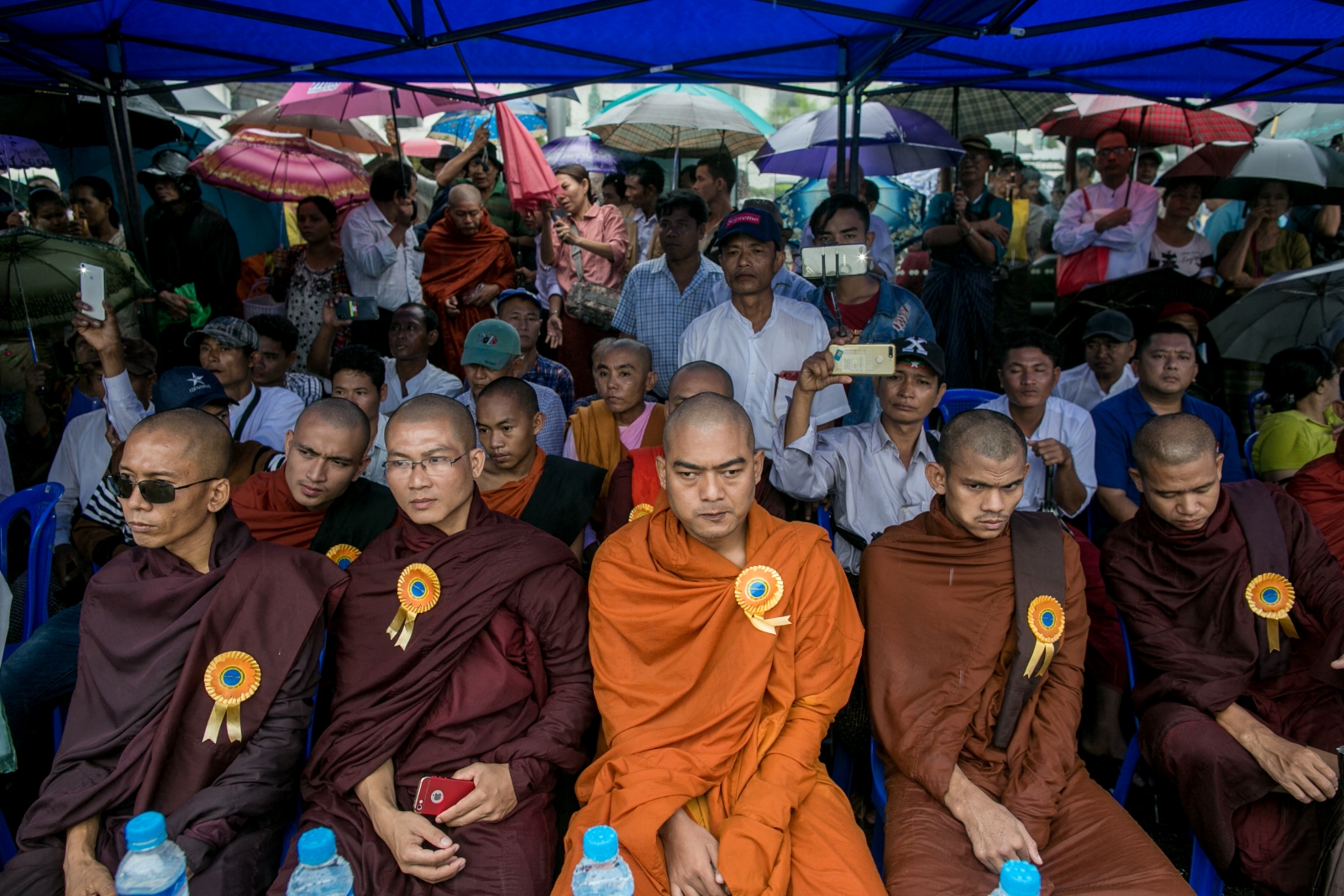Transitional justice in Myanmar cannot simply be ignored.
EVEN BEFORE the National League for Democracy had declared victory in November’s general election, Daw Aung San Suu Kyi had made clear that her incoming government would not be going in for vengeance or “Nuremberg-type” trials for atrocities perpetrated during the decades of military rule – many of them against members of her own party.
Such a declaration will have disappointed many, not least the thousands who were tortured or lost loved ones due to the actions of former governments. But in the country’s current political context, it wasn’t a surprise.
Although the transition has been largely peaceful, it remains carefully poised. As has been well documented, the military’s presence in parliament and control of key ministries means that the government needs to keep the generals onside. The NLD’s long-desired constitutional changes depend on securing an agreement with the military, and in particular the continued building of trust between Aung San Suu Kyi and commander-in-chief Senior General Min Aung Hlaing.
Recent developments suggest that their relationship is strong, but it wouldn’t necessarily take much to set back the progress made to date. Calls for military members to be held accountable for past crimes could put their political understanding at peril.
Stopping further abuses is challenge enough, given extrajudicial killings have continued during the transition. The recent move by the military to admit publicly that seven of its soldiers had killed unarmed civilians in Shan State was an encouraging step, but constant scrutiny will be required to ensure the practice is put to a stop.
Support more independent journalism like this. Sign up to be a Frontier member.
So where does that leave transitional justice in Myanmar’s transition? It is our belief that it cannot simply be ignored.
However, the term “transitional justice” is often misunderstood. It doesn’t necessarily mean justice in its most literal sense, but can involve other measures including truth commissions, reform of the judiciary, rehabilitation programs, reparations and memorialisation. These are all mechanisms that are potentially appropriate in the Myanmar context and should be considered.
On the 28th anniversary of the 8-8-88 Uprising on August 8, calls were heightened for the day to be officially recognised as “Democracy Day”. This is something the government should do as a minimum.
Under the military government, commemorating the day was verboten. The U Thein Sein government allowed activists to stage ceremonies, but barely acknowledged the tumultuous events of 1988 itself. The NLD, which was formed off the back of those protests, needs to go further.
August 8 is celebrated with both great pride and sadness by many people in Myanmar. Officially recognising it would represent one step toward also recognising the atrocities that occurred not only in 1988 but throughout decades of military rule.
Frontier has written extensively on the many challenges that the government faces. The early indications though are that this issue is not a priority. Admittedly, that doesn’t mean things are not happening behind the scenes – in Myanmar, many developments occur sight unseen.
Memorialisation is one step, but it could also be regarded as low-hanging fruit. Other important mechanisms in the Myanmar context include reparations and rehabilitation. Thousands, perhaps tens of thousands, of people languished in jails due to their political views and activities, a large proportion of them experiencing torture and deprivation.
These experiences have had devastating effects; many are still suffering to rebuild their lives. Aside from the physical and mental wounds, there is the loss of livelihoods. Doctors and lawyers lost their licences – even today, many of them have not been reinstated. This has a knock-on effect for their families.
The current government may not have undertaken these actions, but it needs to take responsibility for making amends. Effective state-backed rehabilitation and reparation programs are potential measures.
These would further the government’s state goal of national reconciliation. Particularly in ethnic minority regions, there is still distrust of the central government. Programs and initiatives that go some way toward commemorating and recognising what has happened would help Myanmar move forward on its road to democracy.
This editorial appeared in the August 18 edition of Frontier.







